Get Inspired Writing Prompts from the Experts at Ingrained
Inspiring recovery journal prompts can help you move forward with the journaling process even when you feel stuck. Here’s why journal writing prompts are important while recovering from drug and alcohol addiction: Journaling for someone in recovery from addiction or mental health issues is like a ship moving through a canal; it rises steadily as the locks release water.
Each time you write an entry, it is like the water spilling from the locks and uplifting the ship a bit higher by the minute. The ship eventually rises above obstacles in the shallow waters below. A ship’s gradual progress as it steers through a canal is like the small gains you make by writing in your addiction recovery journal.
Ingrained Recovery, a premium addiction treatment center in Eastman, Georgia, understands how your daily progress in recovery is a hard-won battle. Clients have good days and bad days, and the best place to express those mixed feelings (other than your therapist!) from one day to another is in a journal.
If you want to learn how writing prompts can make journaling more effective and download a free resource to use on your addiction recovery journey, please keep reading. The information and journaling prompts you receive in this article can help you start your journal today.
Get Accredited Treatment at Ingrained
Find Help At Ingrained Recovery
Addiction Recovery Journal Writing: Supporting Good Mental Health
Writing things down can promote mental health and recovery by helping you process and fully understand new concepts. Almost everyone can remember being in middle school, repetitively writing down vocabulary words on paper to memorize the spelling.
But more importantly, writing about your experiences helps you maintain personal accountability. As you explain addiction, your feelings, fears, or things you struggle with in your own life, you process the emotions. Releasing them onto the paper in a space of complete honesty can feel like a mind cleanse.
How effective is reflective writing? Recognizing the difficulty of transitioning to college life, Harvard University started providing journals and prompts to incoming freshmen in 2021. The practice helps the new students take ownership of their mental health and behaviors when they arrive on campus. Harvard named this effort “The Journal Project.”
What Are The Benefits When You Write in a Recovery Journal?
Besides the cathartic release that drives better mental well-being, why should you write in a journal? Here are some additional benefits that can help you with a successful recovery and beyond:
- Developing a More Organized Brain: Putting pen to paper and explaining your thoughts and experiences helps you declutter your brain and reorganize your thoughts. You eventually master better problem-solving skills as you repeat it. These skills aren’t just good during the recovery process; they’re a blessing in everyday life.
- Reducing Your Stress Levels: A life impacted by constant stress is a life more likely to relapse. The National Institute on Drug Abuse says,”Stress can play a major role in starting and continuing drug use as well as relapse (return to drug use) in patients recovering from addiction.” – NIDA. Maintain sobriety by releasing those minor annoyances or major triggers into the pages of your journal. You gain a sense of control over your stressors when you choose when and where to let them go.
- Improving Your Heart Health: You’ve heard the phrase about stress being a silent killer. A study showed that lowering your stress levels by releasing stressors to your addiction journal can also help reduce your blood pressure and increase heart health. Drug and alcohol abuse can have negative consequences on heart health; the addiction recovery process is your chance to help undo that damage.
10 Effective Journaling Prompts to Support the Addiction Recovery Process
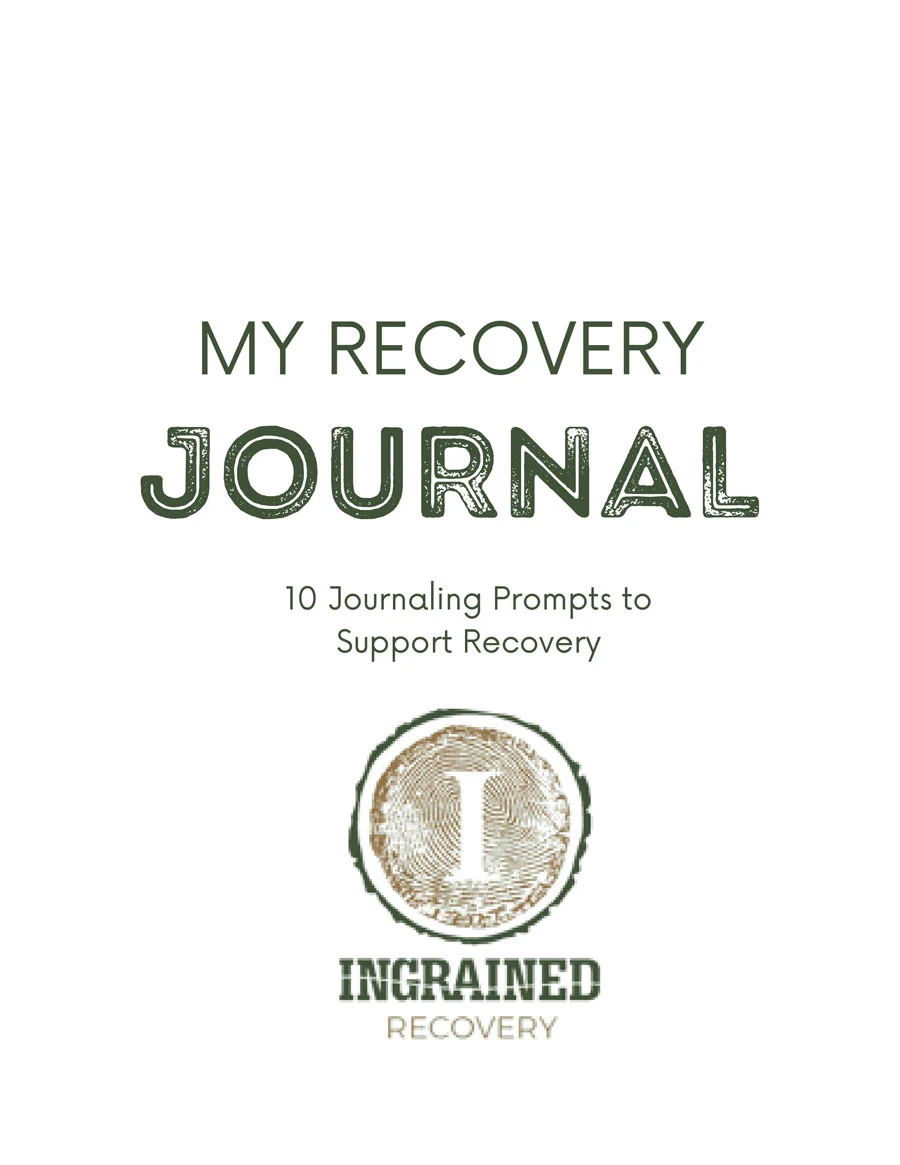
As you explore these journal prompts, remember that there is no grade or scoring system. There’s not a right or wrong way to explore your emotions in your recovery journal. Some people jot a few quick words or make lists, while others write in complete sentences.
Recovery journaling is a tool for self-discovery and better mental health. Be open to exploring those difficult feelings or traumatic memories in this safe space and acknowledge your emotions without judging yourself.
Finally, remember that the most challenging part is getting started. Just work with the journal prompts every day. No particular order is needed as you follow these recovery journaling prompts. If you’re not ready to talk through a prompt, skip it and move forward to the next. The main thing is adding writing in your addiction recovery journal to your daily routine and making it a habit.
1) Write a Letter to ‘Dear Present Self’ to Celebrate Progress Made in Recovery so Far
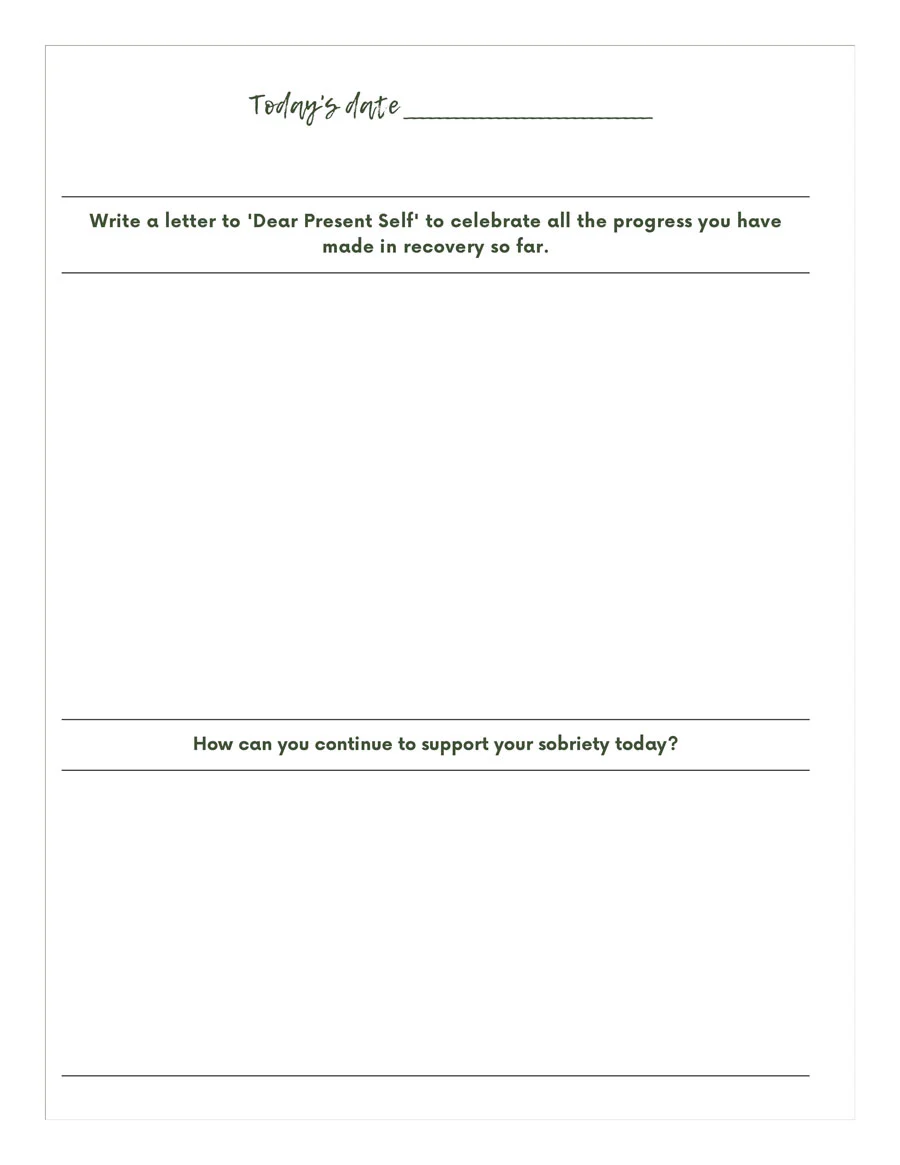
Imagine living a life where you never acknowledge your success story – it’s unfair to yourself not to pause and reflect on your progress. Take a moment and list all the things you’ve accomplished so far in recovery.
Mindfulness of your progress can motivate you to continue making even greater strides in your sober future.
2) Write a Goodbye Letter to Substance Abuse
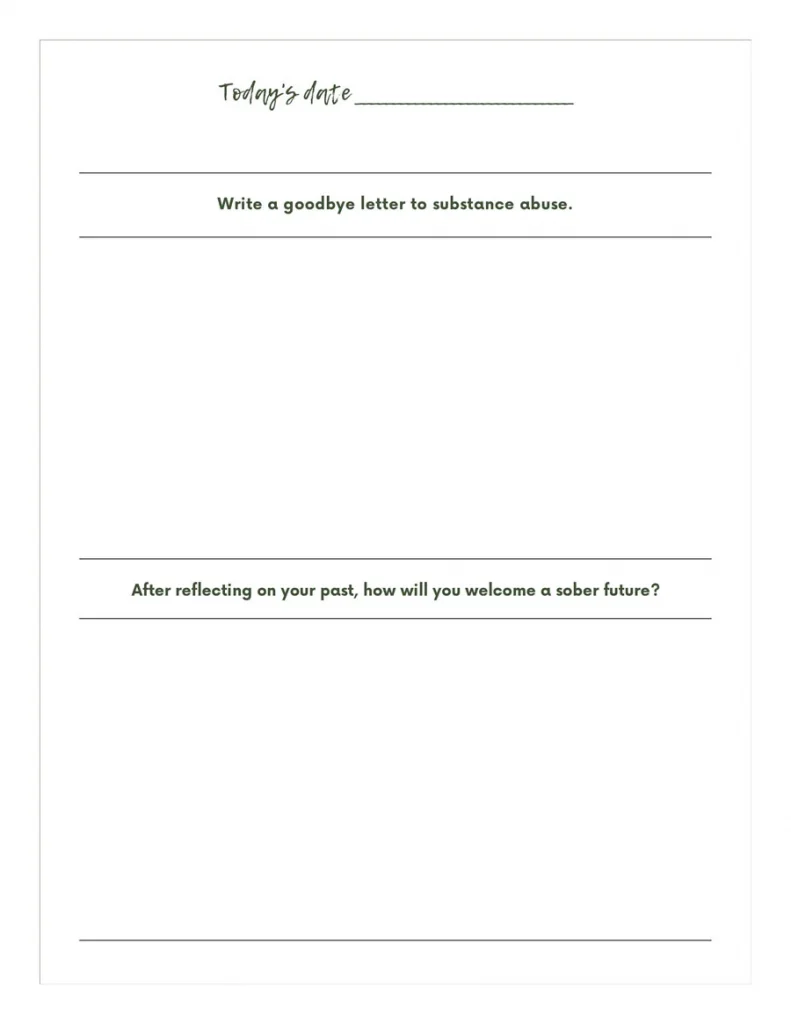
Your sobriety has probably been the biggest fight of your life. Writing a letter that expresses a final goodbye to your substance abuse becomes a promise to yourself.
Journaling a note to bid farewell to your addiction to drugs or alcohol can help you process your emotions at this stage of your recovery journey.
3) Write a Letter Forgiving ‘Dear Past Self’ Now That You’ve Achieved Sobriety
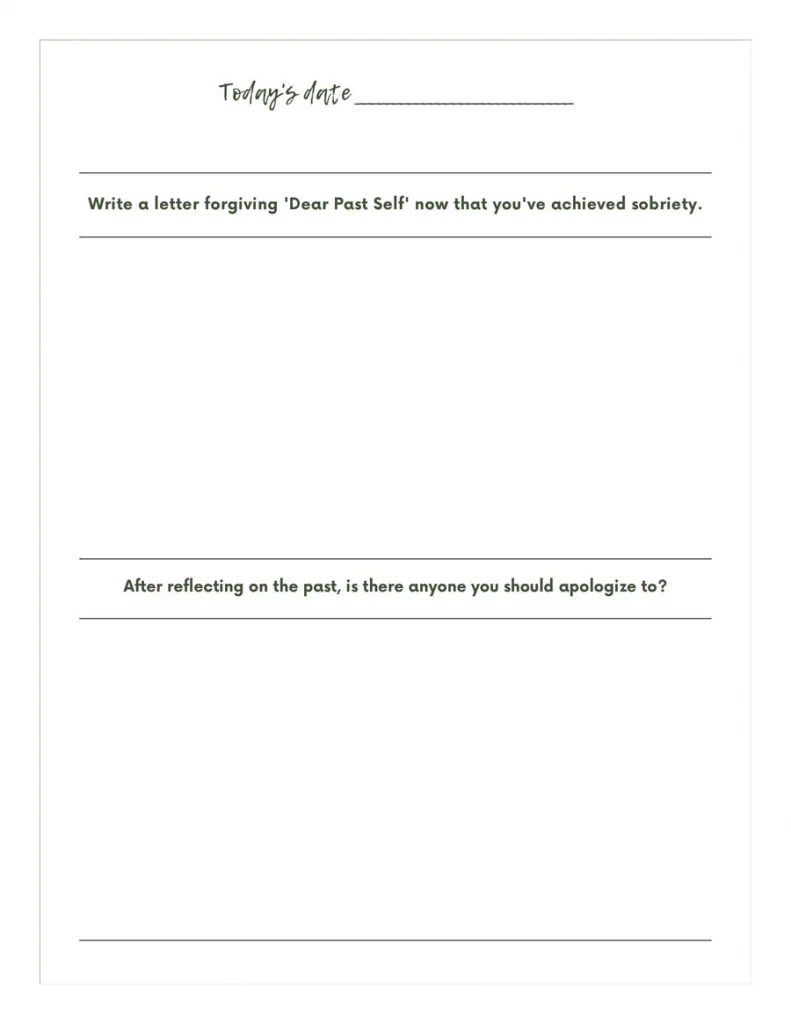
Addiction is a disease that makes a person do or say things that they would never have while sober. No, you can’t change your past actions or words. However, you can forgive yourself for these behaviors in your sober present and consider how to mend those relationships.
Whatever you write about might not be the last mistake you’ll ever make, but you will now have the skills to move from self-loathing to self-forgiveness.
4 )Write 5 New Things to Add to Your Self Care Routine
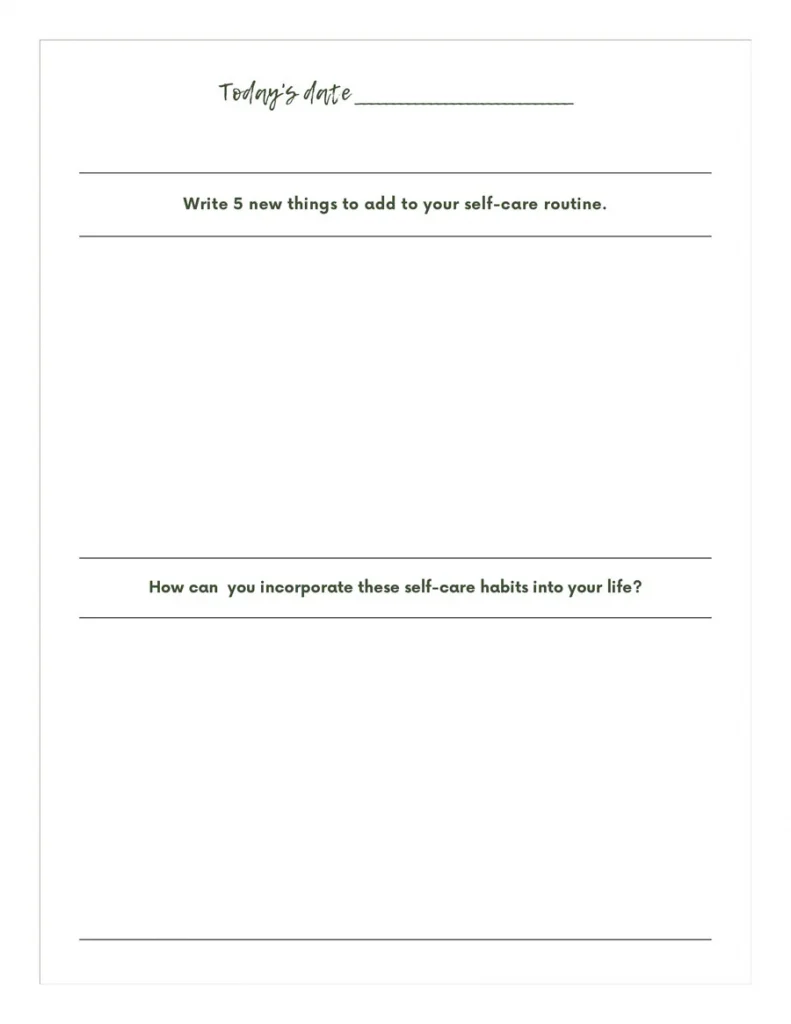
How will you take care of yourself as you continue your recovery journey? You should become your own first love and master self-care. List five new things you’d like to try as you continue looking after your well-being.
Some might be small habits, like drinking enough water every day. Others might require bigger changes, such as completely overhauling your eating habits for better health. That’s up to you.
5) Describe the Family Members and Friends Who Are Always There for You
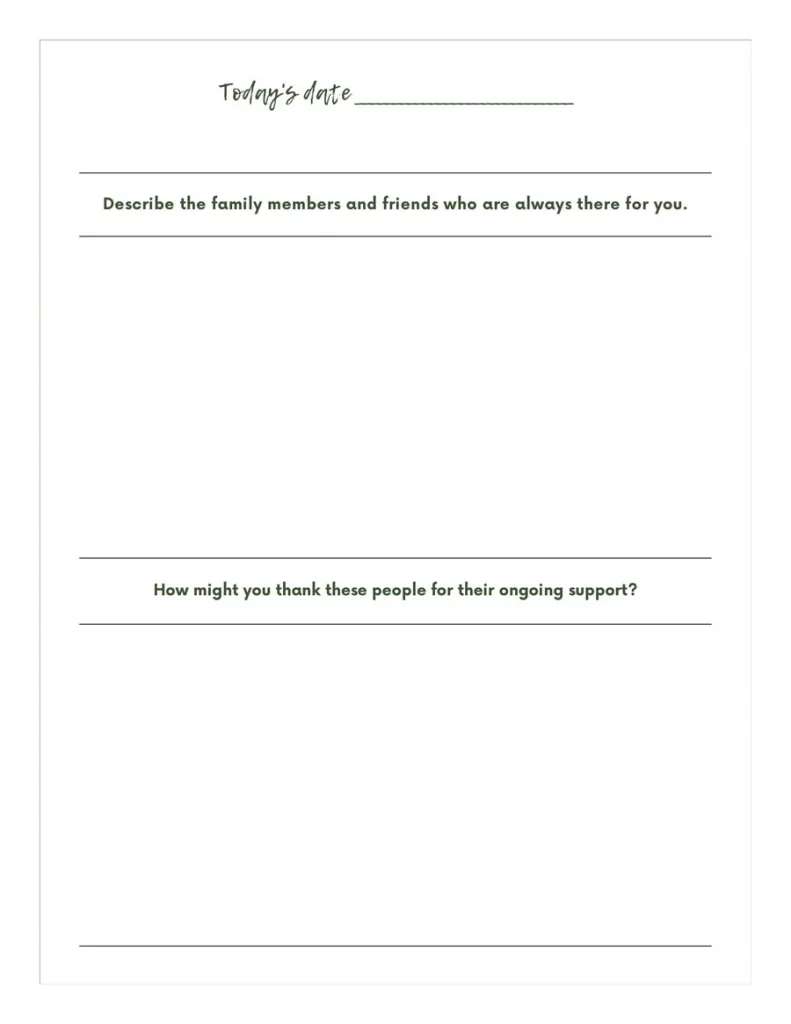
What family members or friends have stood by your side, helping you be successful in your recovery? Describe the actions they take to support you and how you might express your gratitude for their lasting support.
6) Write a ‘Dear Future Self’ Letter Explaining One Skill You’d Like to Master in the Next Five Years
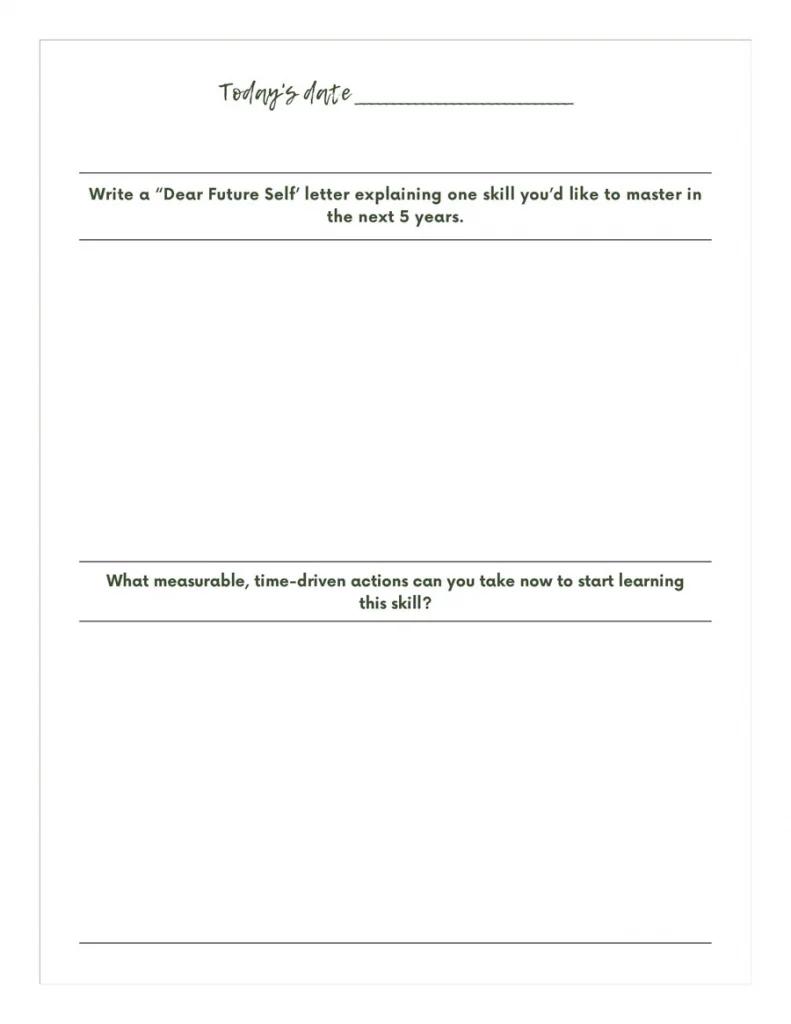
Your current reality might be “one day at a time,” and that’s okay. But you’ll soon feel ready to set some long-term goals and consider your future. Journaling prompts that engage your future self help you visualize the long-term goals to help you build a stable future.
Start slowly, by committing to master one skill – taking these baby steps will encourage you to take bolder actions later.
7) Explain the Happiest Moment You’ve Ever Experienced and Reflect on Why it Made You Happy
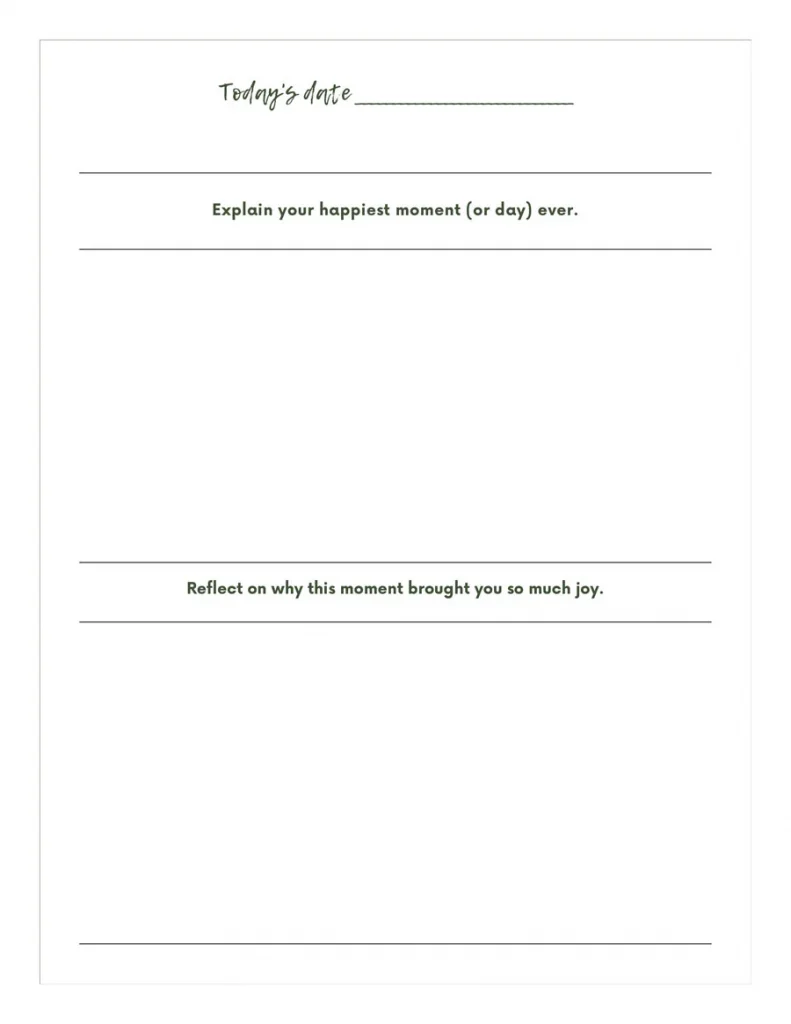
This self-reflection will put a smile on your face. Thinking back to your happiest moment supports positive thinking. But trying to understand why it made you happy helps you dive deeper inside your soul, helping you explore what sources can support joy for the rest of your life.
8) Tell Your Recovery Journal About Your Life Story
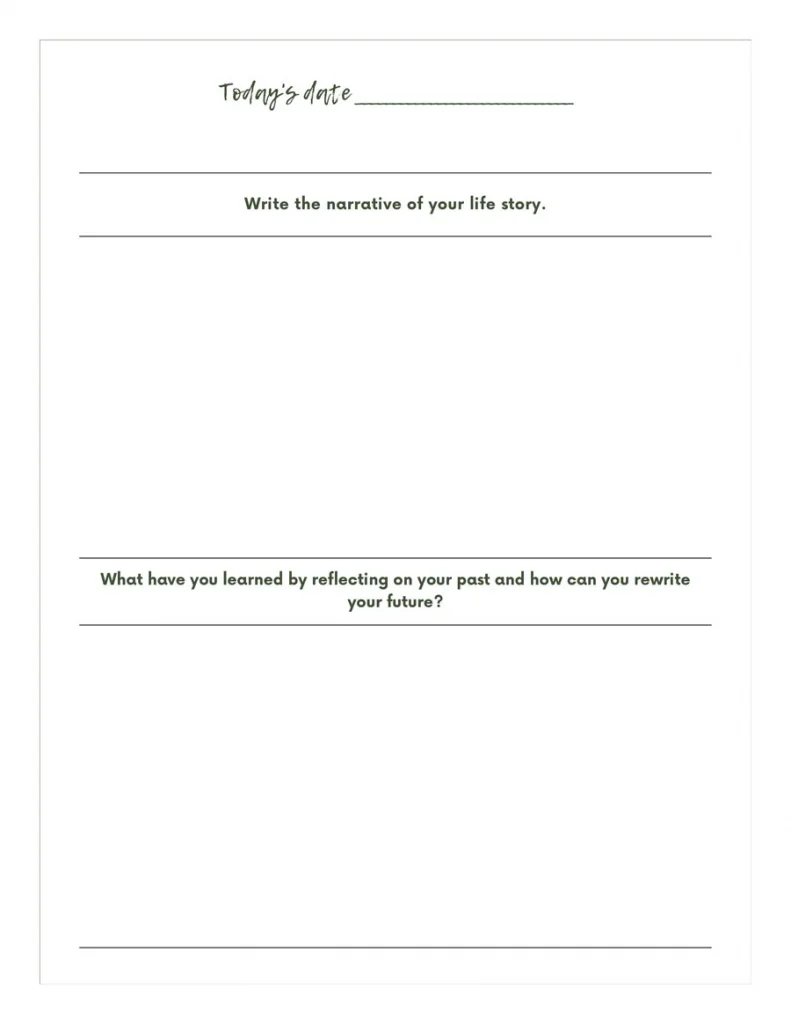
Recovery journaling is all about beating your addiction and moving forward. You will better understand the causes of your addiction by completing this journal entry.
This is one of the most challenging journaling prompts on this list. Dig deep, be honest, and be very descriptive as you write.
9) Write a Love Letter Expressing Unapologetic, Unconditional Love to Yourself
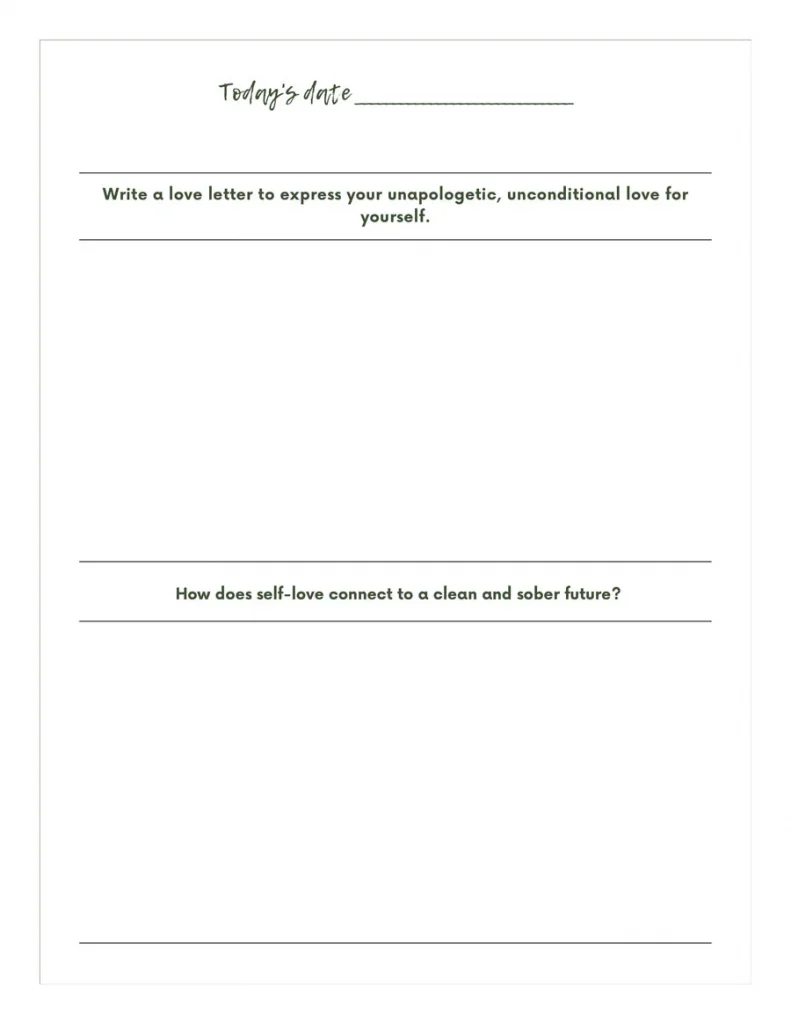
It is a beautiful thing when you can fall in love with the person you’ve become during your healing process. Recovery gives you fresh perspectives on many parts of your life, including how you feel about yourself.
10) Write Ten Things You’re Grateful For and Explain the Reasons for Your Gratitude
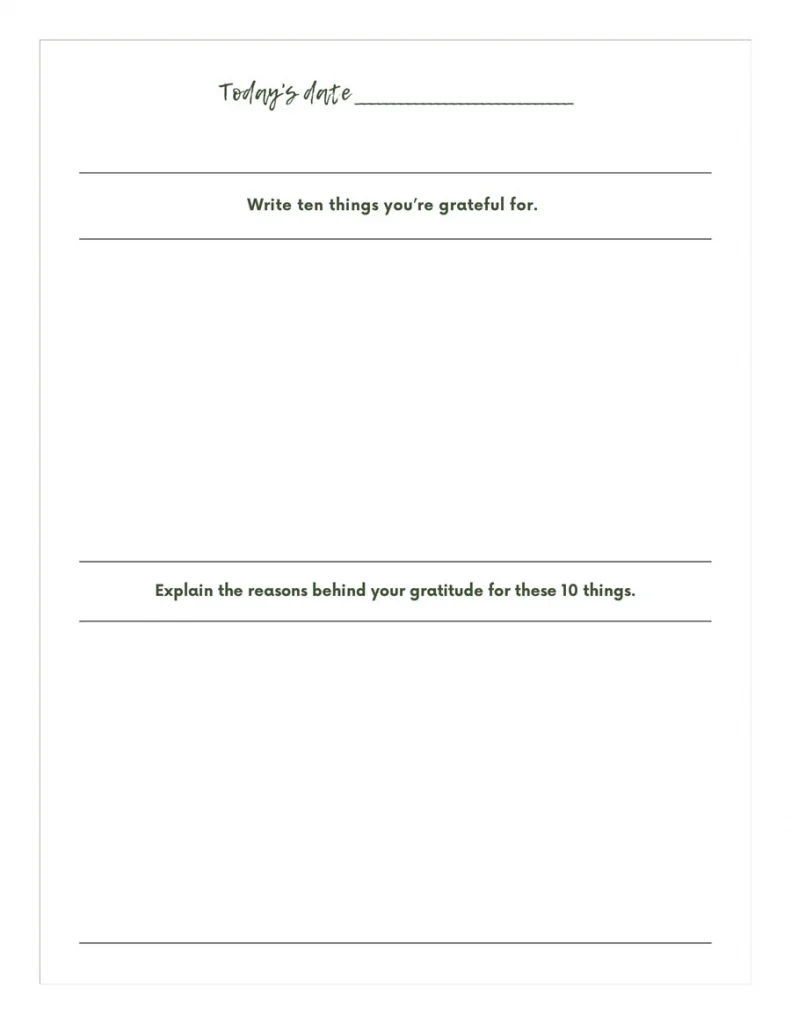
Why are you grateful today? Make a list of the things that fill you with gratefulness today. Here are two good examples to start with: Have you mended any broken relationships during recovery? Are you in a better situation than you were this time last year?
Even on a bad day, consider what might have brought even a fleeting smile to your face.
Up To 100% of Rehab Covered By Insurance
Find Help At Ingrained Recovery
Ingrained Recovery: Offering Hope for the Recovery Process
Ingrained Recovery can meet your individual needs, no matter where you are in the addiction recovery. process. While we hope that these journal prompts will help you make great strides toward sobriety, we also know that many people still need that help.
Like locks feeding water into a canal creating a rising tide to lift our metaphorical ship, we can help you set a manageable goal – recovery – and help you navigate through to safer waters.
If you are ready to start the recovery process or have any questions, call Ingrained Recovery today.

